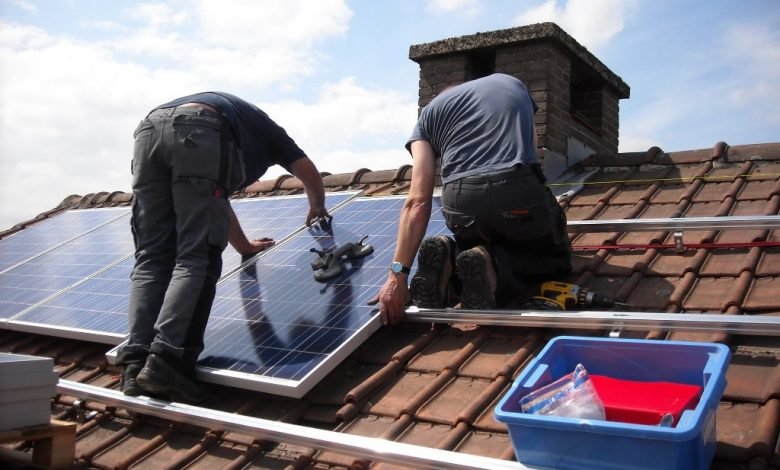
With energy bills rising – but never coming down – solar power is looking more attractive, especially here where we get plenty of sunshine. The folks across the street installed a system last year and love it. Between the energy savings and the fact their home solar system installation boosted their home’s value by $15,000, it’s a win-win.
So what’s involved in adding residential solar panels? What are the real benefits of solar power? Read on for a quick guide to all of the key points to consider when exploring adding solar power to your home.
Is Your Home a Candidate for Solar
With today’s more efficient solar systems, climate and adverse weather play less of a role than they used to. Instead, what is essential is that your house’s roof is in good shape and structurally sound.
If you have a lot of trees casting shadows on the roof, that’s another problem that needs addressing. Finally, your roof should be close to South facing and sloped in the 15 to 35-degree range.
Solar Panel Designs
Today’s residential solar panel designs include monocrystalline, polycrystalline, and thin-film panels. Maximizing your ROI is a trade-off between installation cost and long-term savings, and each type of panel affects that.
Almost universally, you’ll be looking at monocrystalline or polycrystalline solar panels – not thin-film panels. Mono panels cost more, but efficiency and performance are better. Poly panels are cheaper but stick with Monocrystalline panels if maximizing clean solar production is your goal.
Solar Inverters
It’s easy to get so wrapped up in researching solar panels that you forget about other crucial elements of your solar installation equipment. Converting the panels’ DC current to useable AC is the job of the solar inverter.
Skimping on your inverter isn’t something you want to do. Instead, do some research into the best models, looking for a zero-carbon inverter adequately sized for your system.
Hire a Pro: Don’t DIY
You’re handy, so how about handling the entire installation yourself? Even though you might get the job done, don’t. Waiving the warranty on something as expensive as a solar system isn’t something you want to do, and DIY installation almost always voids the warranty.
Having the work done by a professional solar provider near you also means they are responsible for any repairs. So don’t be a hero. Hiring a professional company is the way to go.
Solar System Budget and ROI
Calculating your ROI and determining a solar system budget takes some homework. Your electric bills, which show your usage in kilowatt-hours (kWh), are your starting point.
With those numbers, you and your installer can calculate how long it will take for your system to pay for itself.
Home Solar System Installation
Now that you know the basics of what’s involved in your home solar system installation, isn’t it time you made the switch? Adding a solar system increases your home’s value, saves you money, and makes sure you always have plenty of electricity!
For more informative and entertaining articles, please look around the rest of our site!
